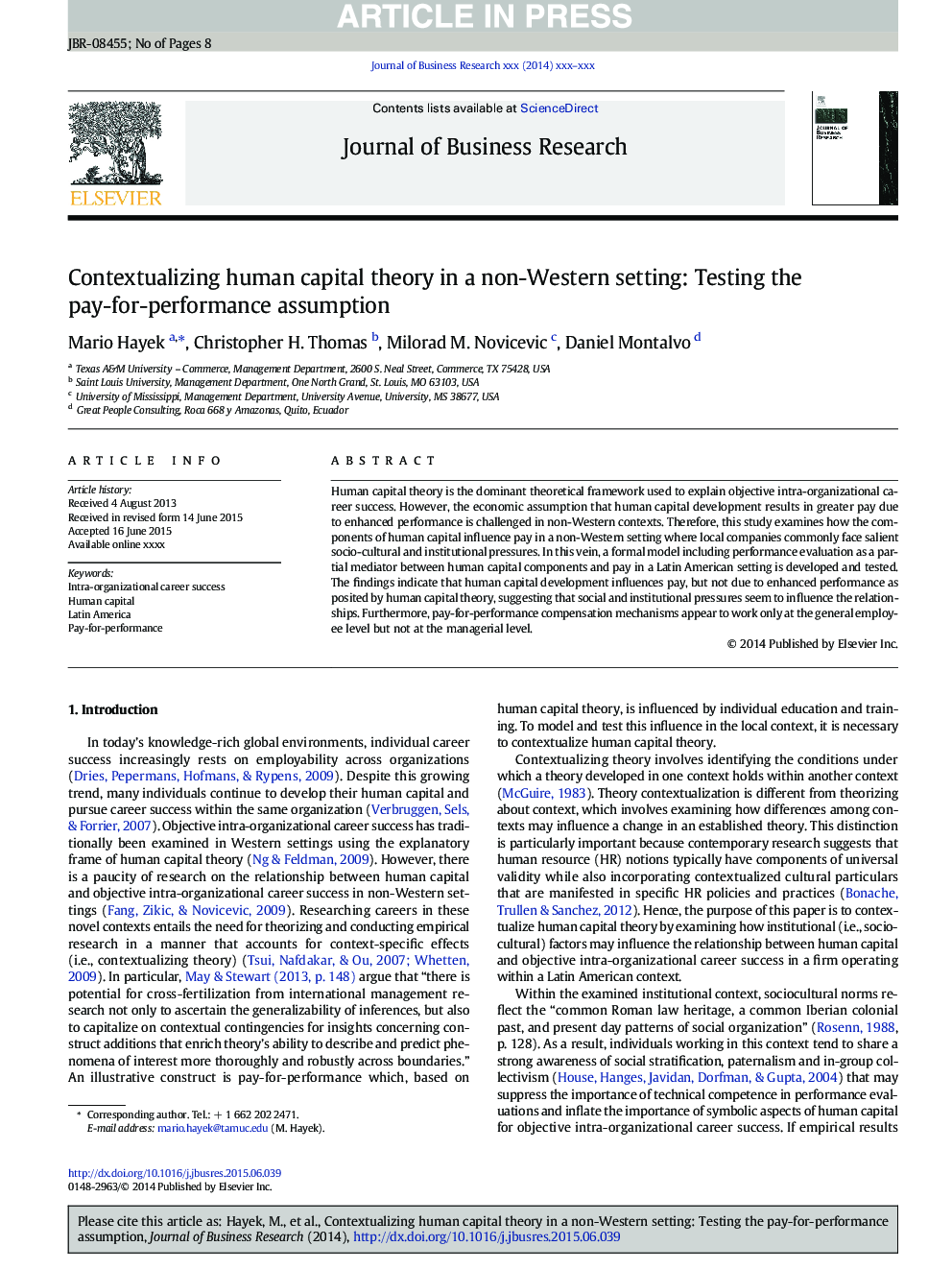| Article ID | Journal | Published Year | Pages | File Type |
|---|---|---|---|---|
| 10492874 | Journal of Business Research | 2016 | 8 Pages |
Abstract
Human capital theory is the dominant theoretical framework used to explain objective intra-organizational career success. However, the economic assumption that human capital development results in greater pay due to enhanced performance is challenged in non-Western contexts. Therefore, this study examines how the components of human capital influence pay in a non-Western setting where local companies commonly face salient socio-cultural and institutional pressures. In this vein, a formal model including performance evaluation as a partial mediator between human capital components and pay in a Latin American setting is developed and tested. The findings indicate that human capital development influences pay, but not due to enhanced performance as posited by human capital theory, suggesting that social and institutional pressures seem to influence the relationships. Furthermore, pay-for-performance compensation mechanisms appear to work only at the general employee level but not at the managerial level.
Related Topics
Social Sciences and Humanities
Business, Management and Accounting
Business and International Management
Authors
Mario Hayek, Christopher H. Thomas, Milorad M. Novicevic, Daniel Montalvo,
